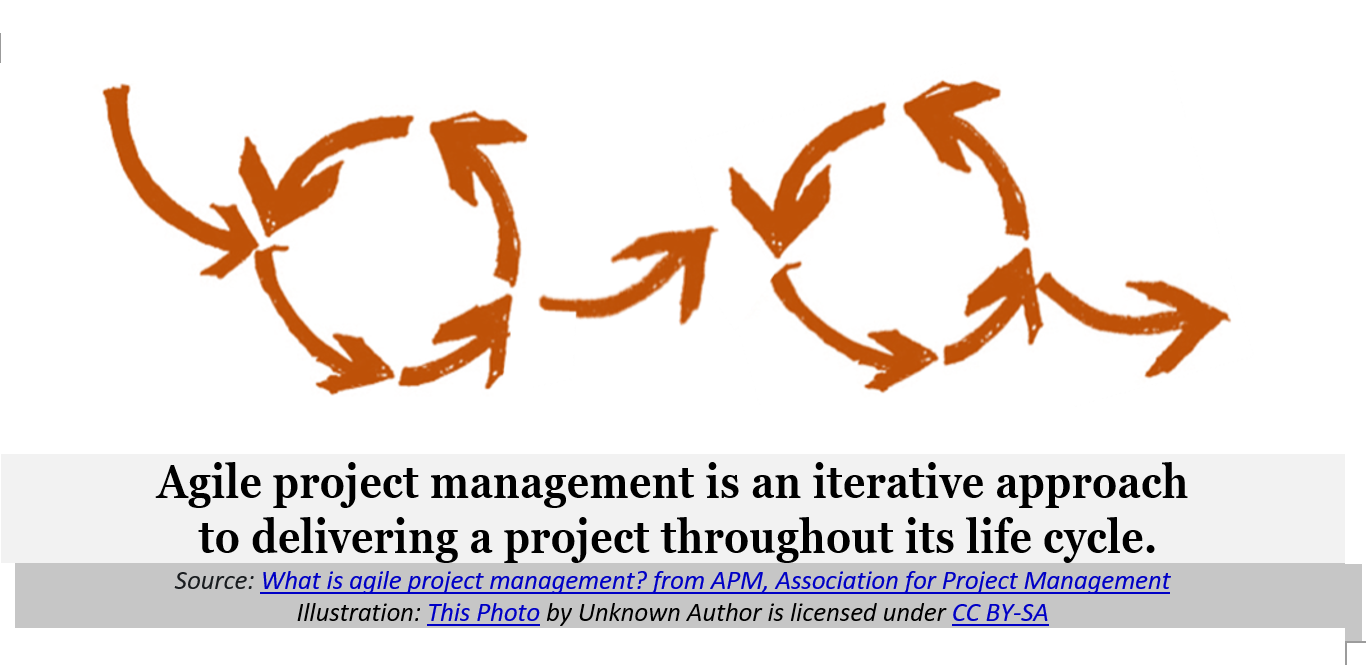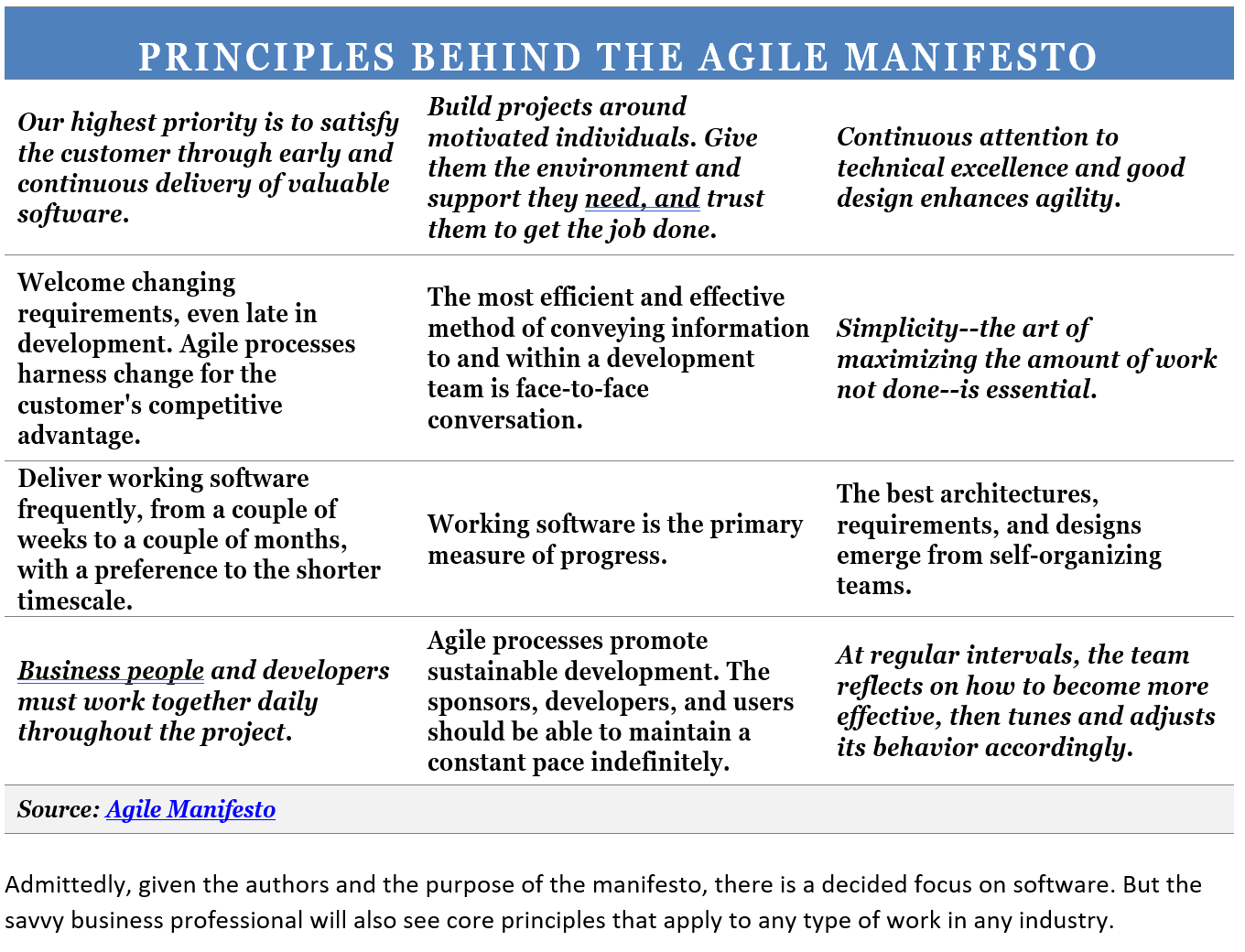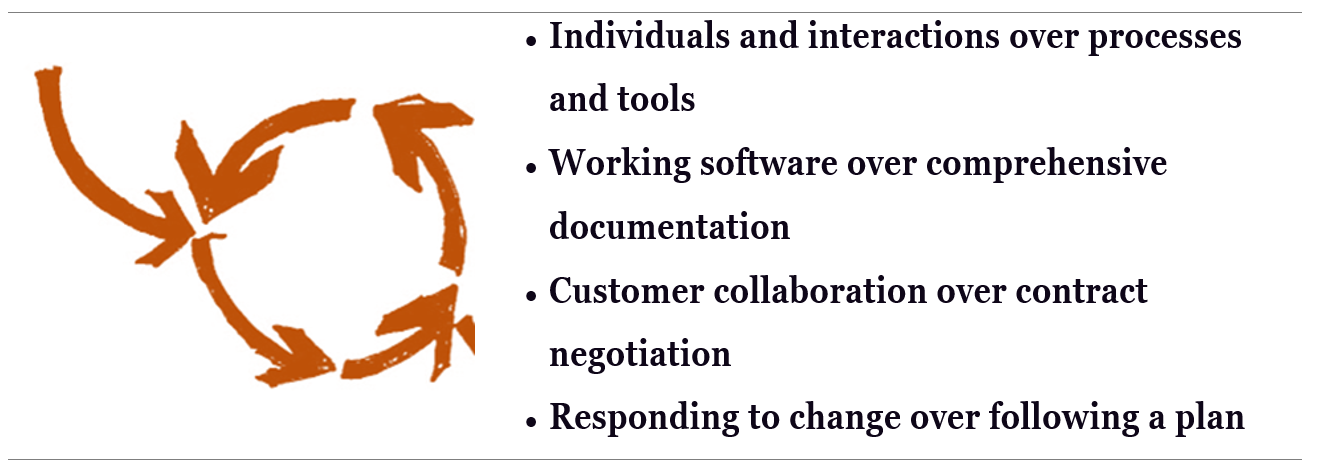Teams that seek to deliver quality, tested deliverables in as short a timeframe as possible are likely already using Agile practices even if they do not know it. The Agile Project Management framework in fact leverages practices that are so common that they do not have an “origin” story, such as prioritization, stand-up meetings, and visual management of tasks. However, the formal Agile Project Management has become tightly connected to software development and projects within the Information Technology (IT) space. When considering whether to “go Agile,” it’s important to understand it as a methodology and in a business context.
On this page:

Download the Ultimate Guide to learning about the PMI-ACP Certification.
What is Agile Project Management?
As noted by the Project Management Academy, “Agile project management is an iterative approach to product delivery that builds incrementally from the start of the project, instead of trying to deliver the entire product at once near the end.” If you have been trained in traditional or “Waterfall” Project Management methodology, your project plans are focused on a finished, final deliverable at the end. Whereas in Agile, smaller deliverables and ongoing refinements are embedded in the project lifecycle.

Because of the nature of software and IT development, requiring incremental change, test, change, test cycles, Agile is most associated with technology efforts. However, Agile as a methodology has roots in the non-software work of lean, agile manufacturing and organizational learning.
Agile Manifesto
One should not consider using Agile without knowing of it’s origin in 2001 with the Agile Manifesto. In Utah, seventeen developers crafted what is known as The Manifesto for Agile Software Development, with a focus on improving the software development process.

Admittedly, given the authors and the purpose of the manifesto, there is a decided focus on software. But the savvy business professional will also see core principles that apply to any type of work in any industry.
Agile Practices That Can Benefit Anyone
Live radio interviews, newscasts and programming is a far cry from the world of software coding. And yet, National Public Radio (NPR), a decidedly non-software development organization, leveraged Agile practices to realize cost savings of up to 66%. As noted by the italicization in the above listing of the 12 Principles, a non-tech team or business can benefit from core Agile concepts summarized as:

The use of Agile outside of IT has been noted in multiple business publications, such as the Forbes article “
Three Ways To Use Agile That Have Nothing To Do With Software Development” where examples are shared from proposition design, product design, and general product/system support. The Project Management Institute, PMI, site has a wealth of resources and practitioner examples speaking to Agile within and beyond IT, including a listing of the more popular agile practices that can be applied to enterprise projects:
- Backlogs
- Sprint
- Cross-functional team
- Continuous integration
- Information radiators
- Iterative and incremental development
- Scrum meetings
- Timeboxing
- Use case
- User story
Agile For Any Business
If your stakeholders, team, or business need additional convincing that you do not need to go “full Agile” while still gaining the benefits of key Agile practices, use this listing of case studies and examples of Agile in non-IT settings.
- Vodafone Applies Agile Outside of IT with Scrum
- How to Apply Agile Practices with Your Non-Tech Team or Business
- Let go of certainty, start using your brain: How to make the most of agile development (ZDNet)
- Agile: why should software developers have all the fun? (ZDNet)
- Four variants of agile development methods (TechRepublic)
- How to tell when ‘We need Agile’ masks deeper project issues (TechRepublic)
- Video: Cornish businesses get Agile to get ahead (Grow Cornwall YouTube)
- Apply Agile Methodology to Non-Software Enterprise Projects
Get Started
The first step is understanding Agile as more than a buzz word or vague concept. The second step is realizing that there are Agile practices that may already be in use by your team or organization, and with knowledge you can refine those or add others. Getting that enhanced Agile knowledge can be achieved with a vetted training source and online course such as “Agile Fundamentals” . And the third step, is making sure you can clearly articulate the business problem to be solved. No project management methodology can solve all of your problems so it’s important to have knowledge and a clearly stated problem to address.


 New Horizons
New Horizons
 Project Management Academy
Project Management Academy
 Six Sigma Online
Six Sigma Online
 TCM Security
TCM Security
 TRACOM
TRACOM
 Velopi
Velopi
 Watermark Learning
Watermark Learning
 Login
Login




 New Horizons
New Horizons
 Project Management Academy
Project Management Academy
 Velopi
Velopi
 Six Sigma Online
Six Sigma Online
 TCM Security
TCM Security
 TRACOM
TRACOM
 Watermark Learning
Watermark Learning